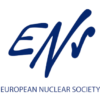European Commission Approved Plans for Two New Units In Romania
On 1st July, the European Commission adopted a positive opinion on the project of Units 3 and 4 at the Cernavodă nuclear power plant in Romania, based on the basis of Article 41 of the Euratom Treaty, as announced by the operator Nuclearelectrica.
Under the Euratom Treaty, nuclear project developers are required to notify the European Commission of planned investments and to demonstrate compliance with the highest nuclear safety standards.
Romania’s energy minister Sebastian Burduja welcomed the approval and said the two new reactors are expected to “make an essential contribution to national and regional energy security by producing clean, zero-emission energy”.
According to the Ministry, the project is also essential for the country’s energy security and independence, and the nuclear share in electricity production is expected to double from the current 18.5% to 36%.
The project would also ensure a competitive energy market and create new jobs in the nuclear sector, supporting at the same time the education and training in the nuclear field.
As Nuclearelectrica said, with 4 nuclear units in operation in Romania, it is expected to avoid the emission of 20 million tons of CO2 per year and to create more than 19,000 jobs in the horizontal industry.
Read the full Nuclearelectrica Press Release.
Romania currently operates the two-units Cernavoda nuclear power plant.
Each unit has 650MW CANDU reactors and the same technology would likely be deployed for future units, as Romania declared.
In October 2021, Bucharest adopted the Integrated National Plan for Energy and Climate Change, which calls for two new CANDU reactors at Cernavoda by 2031 and the refurbishment of an existing unit there in 2037, so as to double the country’s nuclear power supply in a decade.
Then, on 19th December 2022, the Romanian government adopted a draft law on the agreement to build two new commercial reactors at the Cernavoda NPP.
